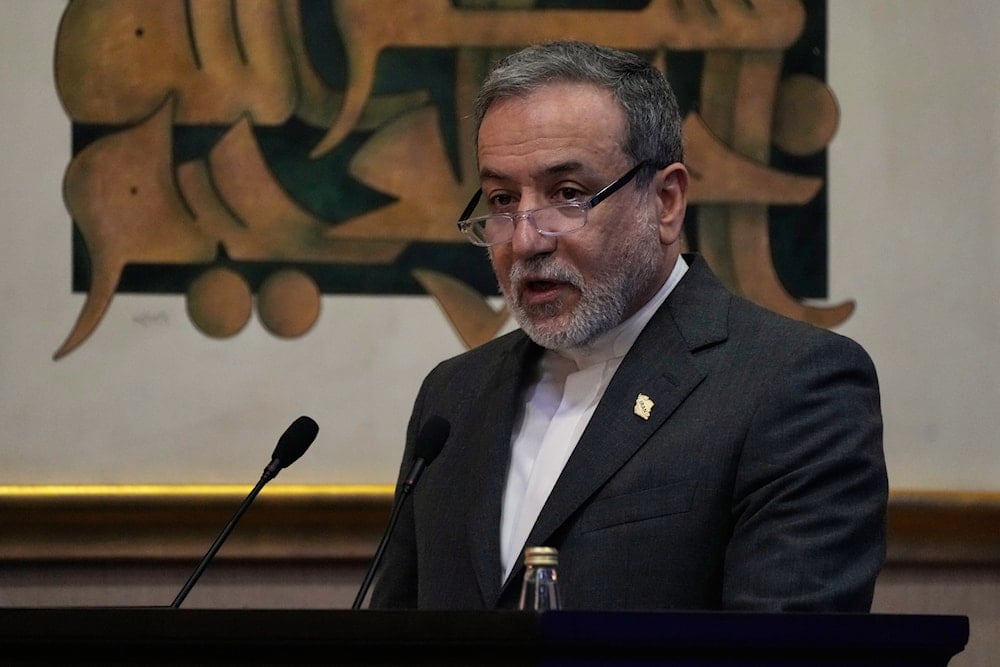Araghchi reveals direct communication channel with US envoy Witkoff
Iran's FM has disclosed that the direct communication channel served as the only one during the 12-day war on the country.
-

Iranian Foreign Minister Abbas Araghchi addresses a conference titled "International Law Under Assault: Aggression and Self-Defense," in Tehran, Iran, Sunday, Nov. 16, 2025 (AP)
Iranian Foreign Minister Abbas Araghchi revealed that there exists a direct communication line with US Special Envoy Steve Witkoff, describing it as a channel for exchanging messages.
Araghchi explained that this direct line was, in fact, the sole channel of communication between the two nations during the recent 12-day war on Iran.
The foreign minister noted that prior to his travel to New York, an agreement was reached to hold a negotiating meeting on the sidelines of the United Nations General Assembly. The proposed meeting would include representatives from the three European powers (the E3) and the director general of the International Atomic Energy Agency.
US proposal implied 'diktats, not negotiations'
However, Araghchi struck a defiant tone regarding US demands, stating that Witkoff had informed him that Iran must accept specific preconditions to begin negotiations. In this context, the Iranian foreign minister asserted that he rebuffed such demands, declaring that the US proposal implied "diktats, not negotiations."
This announcement follows comments made by Araghchi on Friday, in which he accused the E3 and the United States of "killing" the Cairo agreement and escalating tensions and warned that they are "fully aware that the formal termination of the Cairo Agreement is the direct result of their provocations."
Drawing a parallel to a previous diplomatic breakdown, he added, "Just as diplomacy was attacked by Israel and the United States in June, the Cairo Agreement has been destroyed by the United States and the three European countries."
Iran formally terminates Cairo agreement with IAEA
On November 19, Iranian Foreign Minister Abbas Araghchi announced that Iran has formally terminated the Cairo agreement with the International Atomic Energy Agency (IAEA), stating that an official letter was sent to Director General Rafael Grossi declaring the arrangement "no longer valid and officially ended."
Araghchi stated that the understanding had already been nullified following the illegal action of the three European countries in the Security Council to reimpose expired UN Security Council resolutions against Iran, with the message to Grossi marking the first formal notification of the cancellation.
The foreign minister criticized the latest decision by the agency’s Board of Governors, which was introduced by the E3 and Washington against Tehran, exposing these parties for ignoring Iran’s goodwill, undermining the credibility and independence of the agency, and disrupting the path of cooperation between the agency and Iran.
IAEA adopts E3 resolution
On November 20, the IAEA's Board of Governors adopted the European-proposed resolution on the Iranian nuclear file, securing 19 votes in favor, three against, and 12 abstentions, reflecting divisions within the international community over how to address Iran’s nuclear file in the aftermath of the June escalation.
The recent resolution passed by the IAEA Board of Governors demands that Iran provide immediate and comprehensive clarification regarding its enriched uranium stockpile and grant full access to nuclear sites impacted during the June attacks.
The resolution, drafted by the United States alongside the E3 countries: Germany, France, and the United Kingdom, claims that Iran has not sufficiently addressed concerns related to undeclared nuclear activities, particularly at locations damaged by foreign strikes.
It also calls on Iran to resume full cooperation under its safeguards agreement, urging Tehran to allow inspectors broader access to facilities and documentation. However, the resolution avoids any mention of the military assaults carried out against Iran’s peaceful nuclear infrastructure, raising objections over its one-sided nature.

 4 Min Read
4 Min Read








